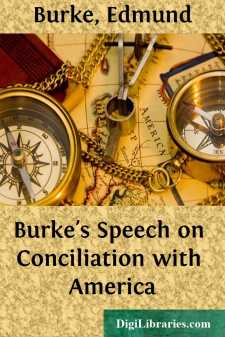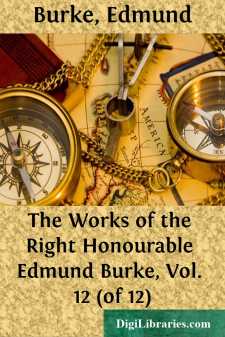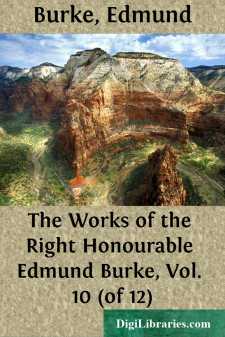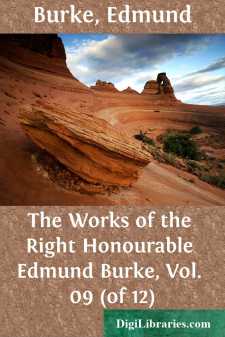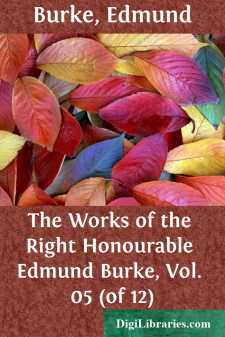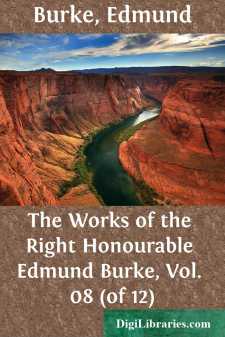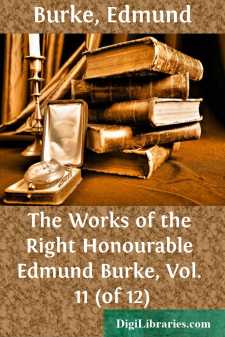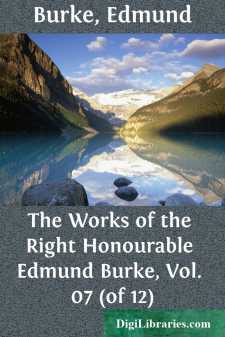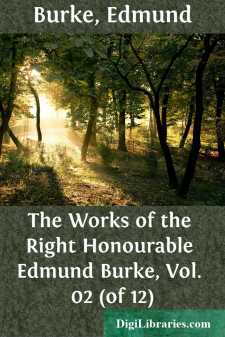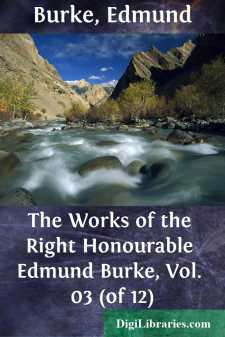Categories
- Antiques & Collectibles 13
- Architecture 36
- Art 48
- Bibles 22
- Biography & Autobiography 813
- Body, Mind & Spirit 142
- Business & Economics 28
- Children's Books 17
- Children's Fiction 14
- Computers 4
- Cooking 94
- Crafts & Hobbies 4
- Drama 346
- Education 46
- Family & Relationships 57
- Fiction 11829
- Games 19
- Gardening 17
- Health & Fitness 34
- History 1377
- House & Home 1
- Humor 147
- Juvenile Fiction 1873
- Juvenile Nonfiction 202
- Language Arts & Disciplines 88
- Law 16
- Literary Collections 686
- Literary Criticism 179
- Mathematics 13
- Medical 41
- Music 40
- Nature 179
- Non-Classifiable 1768
- Performing Arts 7
- Periodicals 1453
- Philosophy 64
- Photography 2
- Poetry 896
- Political Science 203
- Psychology 42
- Reference 154
- Religion 513
- Science 126
- Self-Help 84
- Social Science 81
- Sports & Recreation 34
- Study Aids 3
- Technology & Engineering 59
- Transportation 23
- Travel 463
- True Crime 29
Edmund Burke
Edmund Burke (1729-1797) was an Irish statesman, economist, and philosopher, best known for his support of the American colonies in their quest for independence and his later opposition to the French Revolution. A member of the Whig party, Burke's eloquent speeches and writings, including "Reflections on the Revolution in France," profoundly influenced political thought by emphasizing the importance of tradition and gradual change. He is often regarded as the father of modern conservatism due to his advocacy for social order and skepticism towards rapid, radical reforms.
Author's Books:
Sort by:
by:
Edmund Burke
POLITICAL SITUATION In 1651 originated the policy which caused the American Revolution. That policy was one of taxation, indirect, it is true, but none the less taxation. The first Navigation Act required that colonial exports should be shipped to England in American or English vessels. This was followed by a long series of acts, regulating and restricting the American trade. Colonists were not allowed...
more...
by:
Edmund Burke
SPEECH IN GENERAL REPLY. FIFTH DAY: SATURDAY, JUNE 7, 1794. My Lords,—We will now resume the consideration of the remaining part of our charge, and of the prisoner's attempts to defend himself against it. Mr. Hastings, well knowing (what your Lordships must also by this time be perfectly satisfied was the case) that this unfortunate Nabob had no will of his own, draws down his poor victim to...
more...
by:
Edmund Burke
SPEECH IN OPENING THE IMPEACHMENT. THIRD DAY: MONDAY, FEBRUARY 18, 1788. My Lords,—The gentlemen who are appointed by the Commons to manage this prosecution, have directed me to inform your Lordships, that they have very carefully and attentively weighed the magnitude of the subject which they bring before you with the time which the nature and circumstances of affairs allow for their conducting it....
more...
by:
Edmund Burke
VII.—CONTRACTS. That the Court of Directors of the East India Company had laid down the following fundamental rules for the conduct of such of the Company's business in Bengal as could be performed by contract, and had repeatedly and strictly ordered the Governor and Council of Port William to observe those rules, viz.: That all contracts should be publicly advertised, and the most reasonable...
more...
by:
Edmund Burke
LETTER TO HIS GRACE THE DUKE OF PORTLAND. My dear Lord,—The paper which I take the liberty of sending to your Grace was, for the greater part, written during the last session. A few days after the prorogation some few observations were added. I was, however, resolved to let it lie by me for a considerable time, that, on viewing the matter at a proper distance, and when the sharpness of recent...
more...
by:
Edmund Burke
NINTH REPORT From the SELECT COMMITTEE [of the House of Commons] appointed to take into consideration the state of the administration of justice in the provinces of Bengal, Bahar, and Orissa, and to report the same, as it shall appear to them, to the House, with their observations thereupon; and who were instructed to consider how the British possessions in the East Indies may be held and governed with...
more...
by:
Edmund Burke
REPORT Made on the 30th April, 1794, from the Committee of the House of Commons, appointed to inspect the Lords' Journals, in relation to their proceeding on the trial of Warren Hastings, Esquire, and to report what they find therein to the House (which committee were the managers appointed to make good the articles of impeachment against the said Warren Hastings, Esquire); and who were afterwards...
more...
by:
Edmund Burke
SPEECH ON THE ACTS OF UNIFORMITY FEBRUARY 6, 1772. The following Speech was occasioned by a petition to the House of Commons from certain clergymen of the Church of England, and certain of the two professions of Civil Law and Physic, and others, praying to be relieved from subscription to the Thirty-Nine Articles, as required by the Acts of Uniformity. The persona associated for this purpose were...
more...
by:
Edmund Burke
PREFACE. The following speech has been much the subject of conversation, and the desire of having it printed was last summer very general. The means of gratifying the public curiosity were obligingly furnished from the notes of some gentlemen, members of the last Parliament. This piece has been for some months ready for the press. But a delicacy, possibly over-scrupulous, has delayed the publication to...
more...
by:
Edmund Burke
SPEECH. The times we live in, Mr. Speaker, have been distinguished by extraordinary events. Habituated, however, as we are, to uncommon combinations of men and of affairs, I believe nobody recollects anything more surprising than the spectacle of this day. The right honorable gentleman whose conduct is now in question formerly stood forth in this House, the prosecutor of the worthy baronet who spoke...
more...


